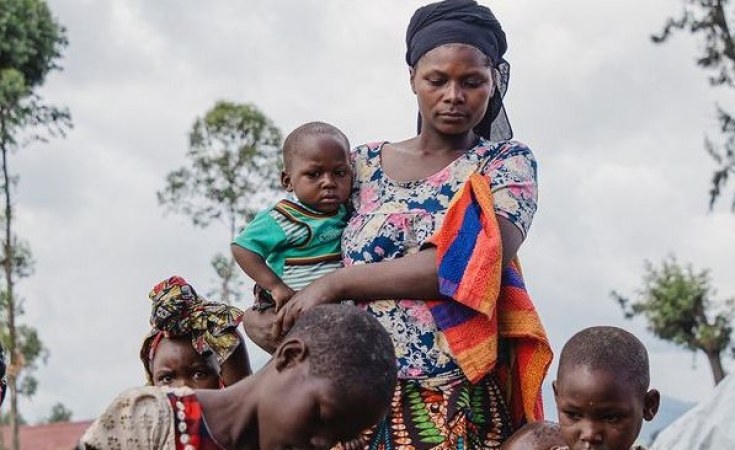There is an urgent need for de-escalation and accountability as Rwanda-backed M23 Intensifies hostilities in eastern DRC.
The United States has issued a scathing condemnation of the escalating violence in eastern Democratic Republic of Congo (DRC), squarely blaming the Rwanda-backed M23 rebel group for exacerbating the already dire humanitarian emergency in the region.
In a strongly-worded statement on 17 February, U.S. State Department spokesperson Matthew Miller pulled no punches, calling out the M23's "incursions into the town of Sake" as actions that have compounded the suffering for millions displaced and under attack.
"The United States strongly condemns the worsening violence...caused by the Rwanda-backed, U.S.- and UN-sanctioned M23 armed group," Miller said, demanding the rebels "immediately cease hostilities and withdraw" from positions around Sake and Goma.
The forceful rebuke comes on the heels of alarming reports that Rwandan forces fired surface-to-air missiles into eastern DRC, a provocative escalation of conventional military force. According to a leaked UN document, a "suspected Rwandan Defence Force mobile Surface-to-Air Missile" was fired at a UN drone, ratcheting up tensions.
"The United States condemns Rwanda's support for the M23...and calls on Rwanda to immediately withdraw all personnel from the DRC and remove its surface-to-air missile systems," Miller stated.
The DRC's eastern provinces have been mired in conflict for decades, with a toxic slew of rebel groups, ethnic militias, and foreign interventions fueling a protracted humanitarian catastrophe. Over 5 million have been displaced in the latest upheaval.
While demanding the DRC cease cooperating with groups like the FDLR militia, Miller underscored that "all states" must "respect each other's sovereignty and territorial integrity" and hold human rights abusers accountable.
Beyond the immediate crisis, the resurgence of the M23 - a rebel force with roots in Rwanda's genocide - raises critical strategic questions about non-state armed groups undermining regional stability.
In the last 60 days, an expert at the U.S. Institute of Peace warned that military force alone cannot resolve these long-simmering conflicts, urging inclusive political dialogue as "the way for enduring peace." They emphasized the key roles of civil society and religious leaders in reconciliation efforts.
As this latest eruption of violence unfolds, deeper issues demand scrutiny:
What are the underlying drivers fueling the M23's resurgence that have been overlooked?
· How can the international community effectively counter rebel groups that transcend borders?
· What ethical lines must be drawn around the use of force against groups like M23?
· Without concerted action to address these systemic issues, the cyclical violence and humanitarian suffering in eastern DRC seem destined to persist unabated.
Pearl Matibe is a Washington, DC-based White House Correspondent, and media commentator with expertise on U.S. foreign policy, and international security. You may follow her on Twitter: @PearlMatibe


